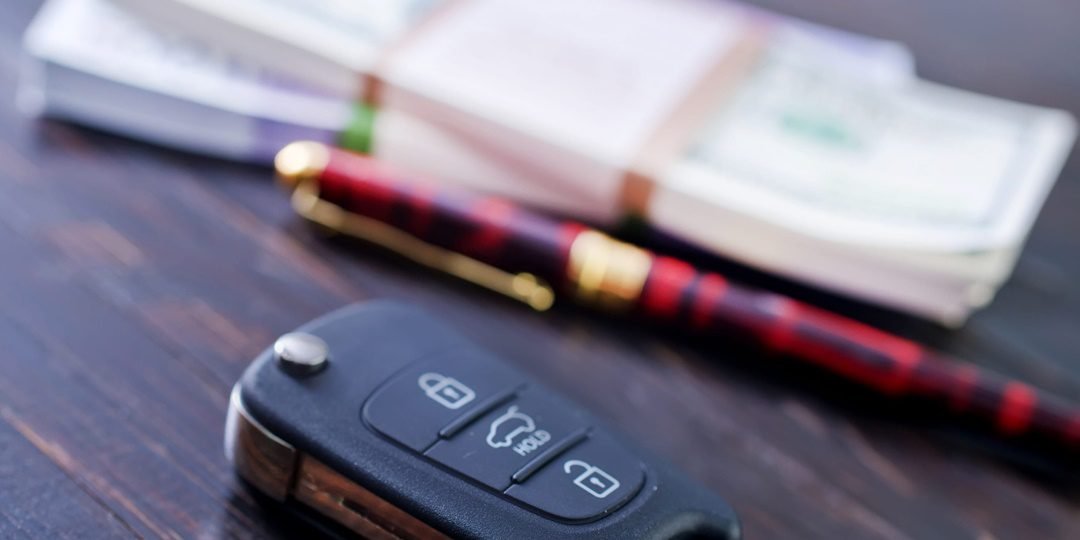TFC Title Loans has countless customers that ask “What is a lien on a car title?” We get asked this so often because they continually hear us talking about putting a lien on their title to complete the title loan process. A lien is a legal right that a lender has on a property that is used as collateral by the borrower.
A lien can be very generally defined as the legal right that a lender has on a piece of property used as collateral that someone else owns. This legal right may include the ability to take possession of the property used as equity if the borrower defaults or breaches any of the agreements signed.
What is a Lien on a Car Title?
If you are applying for car financing or a car title loan, a lien will be placed on your car title just to form a kind of security the lender can hold on to in case you decide not to pay or delay payment. To avoid the risk of financial loss, the lender will maintain the lien against the vehicle until the car itself or the personal loan is completely paid off. If the auto loan defaults, the lender can sell the collateral to recoup any losses.
A car lien remains on the title until the debt has been repaid. The lender will issue a lien release after the final payment is made.
When purchasing through a dealer, the dealer typically files a lien on your behalf. If you already have a title and need to add a lien, you’ll need to follow the guidelines to file a lien issued through and by your state of residency.
Lien Ownership
When the lender has your title, you still get to drive your car; it is only the title that we keep for the duration of the car loan. Once you have repaid the loan in full, we will sign the title back over to you to signify that we have released the lien title we placed on your car.
We then mail the title back to you unless you prefer to pick it up from us in person. Once you have your vehicle’s title back from us, it will be free and clear with absolutely no lien on it whatsoever.
What is a Lien holder?
Lien holders are the lender that owns your car or other property. Until the loan is paid back in full, they retain full ownership over that property. They have a fully legal claim to the vehicle because they issued you the finances to purchase the car.
A lien holder is someone who has leased a car to you with an insurable interest, or, given you money to purchase the vehicle. The lien holder is typically a bank or some sort of financial firm. When insuring your car, the lien holder will usually be included in your insurance policy. When financing a vehicle, the lien holder’s name will appear and remain on your car’s title and insurance policy until the loan is paid off.
Can a Lien holder Affect the Car Title?
When you borrow money for a car, the lien holder will keep the title. The lender’s name will appear on the car title, and this is because it’s proof of ownership of the vehicle. This ensures you can’t sell the vehicle until your loan is paid off in its entirety.
Once you repay the loan, the lien holder will sign the title over to you. The process can take up to or a little longer than 5 full business days. Once paid off, you can then go to the DMV and get lien filing paperwork to receive a title directly in your name. At that point, the car is officially yours to keep, drive, or sell as you please!
How to Put a Lien on a Car Title
Already have a car title and want to add a lien? You will need to follow and adhere to the lien filing guidelines issued by your state. Preferably, state of residency! Otherwise, placing a lien on a car out-of-state can, at times, be tricky.
Filling out the Lien paperwork
Obtaining a title application is as easy as going to your local DMV and filling out the appropriate lien title paperwork. You will want to fill out your personal information and vehicle information. You need to fill out the lien holder information which includes the address and lien code. You then submit your application to the clerk and pay the appropriate fees to add a lien holder.
Fees & Documents For Lien Holders
Fees vary by state. It is suggested you contact your local DMV to identify the fees you will need to pay for the lien filing. You may need to show loan documents for verification. Once filed and the information has been verified, the DMV will issue a new title.
Depending on the state you are living in, the car title may be mailed to the lender as a secured first party. In turn, you will receive a copy in the mail.
Be sure you maintain the copy your receive as it is crucial to your car for proof of ownership. With it, you can continue to drive or sell your car with a title as needed.
It should be noted – in some states, the owner of the vehicle receives the title and the lender receives a lien title status notice.
Items you need
- Car Title
- Lien Holder Information
- Loan Documents
- Title Application
- Fee (contact your local DMV to inquire about any lien application fees)
Lien Release, Mechanic Lien & Payoff Tips
- Once you pay off the loan, the auto lender will mail a lien release with the title to you per state regulations. You will then have to take the car title along with the lien release to your local DMV and request a lien-free title to be issued.
- Individuals can file a mechanic lien for non-payment of debts. This includes services or a loan. In some states, a mechanic’s lien will need to be filed directly in court.
Frequently Asked Questions About Liens on Car Titles
- What does it mean to have a lien on a car title? Having a lien on a car title means that a lender or financial institution has a legal right to the vehicle as collateral for a debt owed by the vehicle owner. This typically occurs with auto loans or title loans where the vehicle is used as security.
- Can I sell or transfer ownership of a vehicle with a lien on the title? Selling or transferring ownership of a vehicle with a lien is possible, but it requires paying off the loan or having the buyer assume the debt. The lien holder must release the lien on the title to complete the sale legally.
- How do I remove a lien from a car title? To remove a lien from a car title, the borrower must pay off the loan in full. Once the lender receives full payment, they will issue a lien release document or electronically release the lien from the title with the Department of Motor Vehicles (DMV).
Quote from Daniel Joelson, Consumer Finance Expert: “A lien on a car title signifies that the vehicle is used as collateral for a loan. It’s important for vehicle owners to understand their obligations under a lien, including timely payments and the process for lien release upon loan repayment.”
This article was brought to you by TFC Title Loans, we try to bring to you the most informative information. If you are interested in getting a title loan local to you, we are able to help you with our large referral network ,we have options for you, if you are looking to get Seattle title loans , we are here for you.
We will help you to get the most money by using the equity that you have in your vehicle, the application is fast and we can provide you with same-day funding.
All of our referral partners are in compliance with the CFPB. We will help you to get the money that you need from a trusted and reliable title lender.
If you are looking for a title loan with no vehicle inspection, we are here to help you. All you have to do is apply online or call 844-242-3543.
Related Articles:
- What Do You Need for a Title Loan?
- How to Get Your Car Title After Paying Off Your Title Loan?
- Can you get a Title Loan While Still Making Payments?
- How to Pawn Your Car Title



